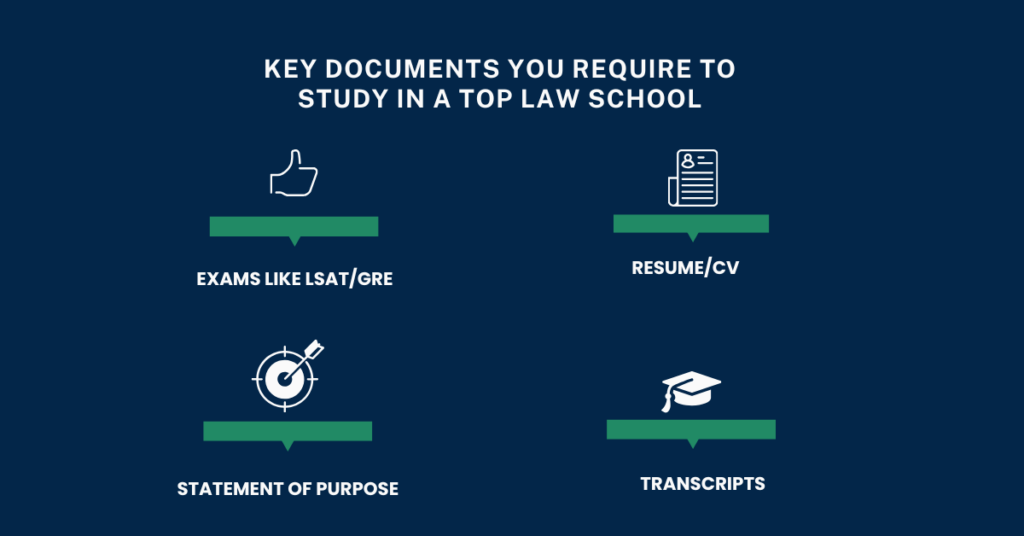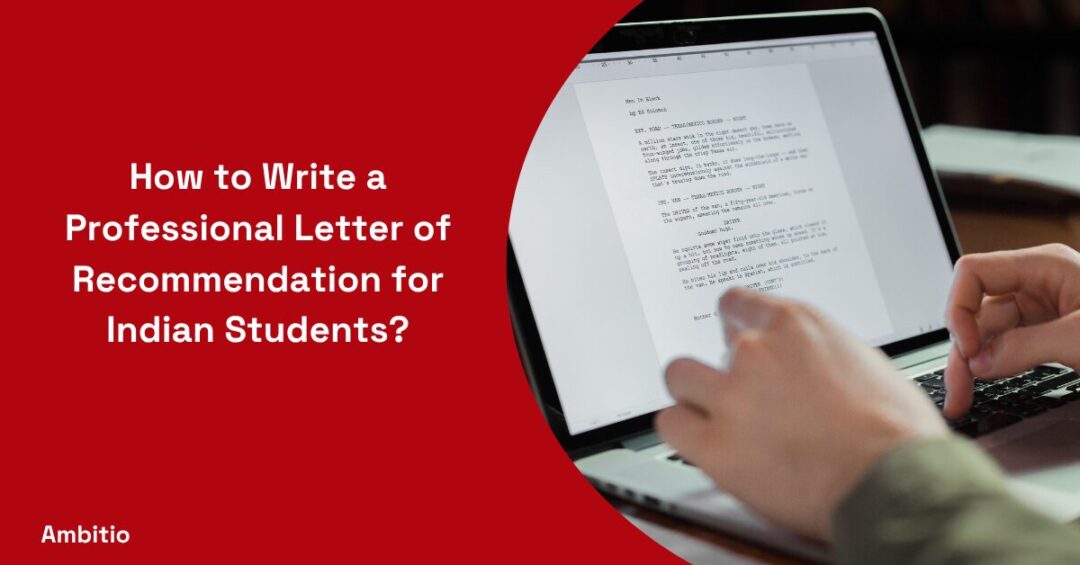15 July 2025
6 minutes read
How To Write A Law School Letter Of Recommendation: A Complete Guide For Indian Students 2025

Key Takeaways
- Know how to write a law school letter of recommendation that highlights real skills, not vague compliments.
- Choose recommenders who can give specific examples and genuinely know your academic and personal strengths.
- Give your writers everything they need—resume, goals, and school details—to craft a meaningful letter.
Every year, over 60,000 students apply to law schools through the Law School Admission Council — and guess what? Most of their letters of recommendation sound like they were written by a robot with a thesaurus.
But Indian applicants often underestimate how powerful (or how damaging) a law school letter of recommendation can be. A vague LOR filled with generic praise? That’s a guaranteed way to blend in and be forgotten by the admissions committee. Especially when you’re competing globally, “She was a good student” just doesn’t cut it.
If you’re applying to law school in 2025, you need strong letters of recommendation that scream analytical depth, showcase your work ethic, and highlight your professional achievements — not ones that could’ve been written for anyone. This guide will show you exactly how to make that happen — whether your recommender is a professor, supervisor, or someone who just knows you well enough.
What Is Law School Letter Of Recommendation All About?
A law school letter of recommendation is a written document submitted during the application process that evaluates your candidacy based on academic performance, personal qualities, writing skills, analytical skills and professional behavior. These letters of recommendation are written by someone who knows you in a professional or academic setting — typically a professor or supervisor — and are submitted through the Credential Assembly Service (CAS) for most law schools.

The right letter could be the difference between a yes and a no. Admissions committees read many letters, so the ones that stand out are written by someone who truly knows you and can write your letters with genuine insight. It’s important to identify the right time — usually 6–8 weeks before deadlines — as the time to ask your recommender. When you ask to write your LOR, ensure they can highlight key attributes, offer specific examples, and send strong letters on your behalf that enhance your candidacy.
How To Write A Law School LOR (Recommendation letter)?
Your law school recommendation letter is not a backup singer to your personal statement and resume. It’s a solo performance. Yet most people treat it like an afterthought, handing it off to a professor with a vague “Sir, can you please write something nice about me?” and then praying it’ll get them into Harvard Law School. That’s not how this works. If you want to excel in law school and actually get admitted, your letters of recommendation can strengthen or completely sink your application.
Here’s how to get it right — smarter, not harder.
1. Choose Your Recommenders Like You’re Hiring a Lawyer
Not everyone should write your LOR. Academic Letter Of Recommendation are written by professors and work supervisors who know you well, not by your internship buddy or that relative who’s a lawyer. Ideal recommendation writers are those who’ve seen your skills and qualities in action — your ability to grasp legal concepts, your ability to think critically, and your potential to contribute to the school community. Start by compiling a list of potential letter writers based on who can truly write you a strong letter with specific examples.
2. Make It Easy for Them to Brag About You
Once you’ve found the right people to write the letter, don’t just expect them to magically remember every detail. Give your recommenders a package: your personal statement and resume, a draft of your school letter of recommendation sample, the application requirements, your achievements, and even areas where your recommender can cover deficiencies in your application. This will help them align the letter with what many law schools are actually looking for — and avoid generic fluff.
3. Educate Them on LSAC’s LOR Service
Most law schools use LSAC’s LOR service to collect and process recommendations. Explain to your letter writers how it works, what the deadlines are, and how to submit through LSAC’s platform. If they understand the system, it’s easier for them to manage weeks to write your letter without confusion — especially if you’re submitting three letters of recommendation or more. Remember, even one letter that’s off-track can damage your admission to your law school goals.
4. Add Context — You’re Not Just a Law Student, You’re a Brand
If you want your letter should include more than “X was an exceptional student,” you need to position yourself. Whether you’re passionate about environmental law or a future law school graduate aiming to impact law school and beyond, provide your recommenders with context. Explain what your dream school values, what your goals are, and how this letter fits into your overall narrative. Think of it as reputation management — but for admissions.
5. Timing Is Strategy: Don’t Wait Till They Ghost You
It takes time to write the letter — don’t just drop an email a week before the deadline. Most good professors and supervisors who know you well are swamped. The best letters of recommendation are written over time, not rushed on a Sunday night. Give at least 3–4 weeks to write your letter, and send follow-ups gently. Include your name and contact information, so your recommendation writers don’t waste time digging through old emails.
What Other Documents Law School Application Requires?
As an applicant, a LOR isn’t the only thing you should rely on to impress the admissions committee. A solid law school application is a package — every document plays a part in your candidacy.
So if you’re planning to study law school and beyond, here’s a quick breakdown of all the application requirements you need to gather, sort, and submit — in one clean table.
| Document / Exam | Purpose | Required By | Pro Tips |
|---|---|---|---|
| Letters of Recommendation (LORs) | An LOR showcase your academic and personal strengths through three letters of recommendation. | Almost all law schools via LSAC’s LOR service | Ensure your recommendation writers submit through the Credential Assembly Service. |
| Personal Statement | A personal statement demonstrates your motivation, writing skills, and why you’re pursuing law. | All law schools | Tailor it for each school. Keep it compelling and honest. |
| Resume/CV | Highlights your professional achievements, experience, and leadership. | All law schools | Emphasize legal exposure, research, and relevant work. |
| Academic Transcripts | Shows your academic record and GPA. | All law schools | Request early; some universities take time to send them out. |
| LSAT (Law School Admission Test) | Tests your analytical skills and ability to think critically. | Most U.S. law schools | Prep at least 3–6 months in advance. |
| TOEFL / IELTS | Proves English proficiency for non-native speakers. | Required for international students | Minimum scores vary by school, usually 90+ (TOEFL) or 6.5+ (IELTS). |
| Credential Assembly Service (CAS) | Centralized platform to submit transcripts and LORs. | Required by schools using LSAC’s platform | Register early to avoid delays in processing. |
| Writing Sample / Addenda | Optional essays for character explanations or deficiencies in your application. | Depends on the school | Use only when necessary — keep it concise and fact-based. |
| Proof of Identity | Passport, ID, or any government document with your name and contact information. | All international applicants | Should match your application and test documents. |
Conclusion
If you want to actually get into a top law school, stop treating your letter of recommendation like an afterthought. It’s not just a formality — it’s your silent advocate in the room where admissions decisions are made. Make it count.
But if you want an expert, who knows what universities like to see in you. Who has written 1000s of LORs and who writes personalized Letter of Recommendation then you should book a call with Ambitio. Firstly, it is completely free consultation and secondly – they give you the right roadmap.
FAQs
What are the basic eligibility requirements to apply to law schools abroad?
Generally, you need a completed secondary education (for undergraduate law programs) or a bachelor’s degree (for graduate law programs like J.D.). Some countries require specific academic qualifications or degrees depending on the program level
Do I need to take any standardized tests for admission?
Yes, many law schools abroad require standardized tests such as the LSAT (USA, Canada), LNAT (UK), SAT/ACT (undergraduate in the USA), and English proficiency tests like IELTS or TOEFL for non-native speakers
How important is choosing the right country or legal system?
Very important. If you plan to practice law in a specific jurisdiction later, you should consider studying in a country with a compatible legal tradition (common law or civil law)
Can I study law abroad right after 12th grade?
In some countries like the UK, Australia, and New Zealand, you can start an undergraduate law degree (LLB) right after high school. In the USA and Canada, law school is a graduate program requiring a prior bachelor’s degree
What documents are typically required for the application?
Common documents include academic transcripts, proof of English proficiency, letters of recommendation, personal statements, a valid passport, and sometimes financial proof for visa purposes

You can study at top universities worldwide!
Get expert tips and tricks to get into top universities with a free expert session.
Book Your Free 30-Minute Session Now! Book a call now




























